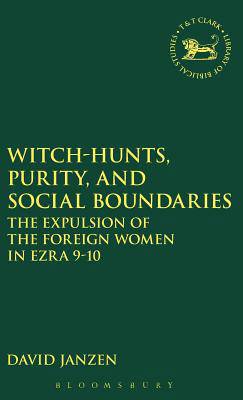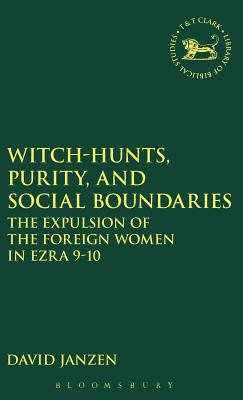
- Afhalen na 1 uur in een winkel met voorraad
- Gratis thuislevering in België vanaf € 30
- Ruim aanbod met 7 miljoen producten
- Afhalen na 1 uur in een winkel met voorraad
- Gratis thuislevering in België vanaf € 30
- Ruim aanbod met 7 miljoen producten
Witch-Hunts, Purity, and Social Boundaries
The Expulsion of the Foreign Women in Ezra 9-10
David JanzenOmschrijving
The anthropological approach to the expulsion of the foreign women from the post-exilic community argues that it was the result of a witch-hunt. Its comparative approach notes that the community responded to its weak social boundaries in the same fashion as societies with similar social weaknesses. This book argues that the post-exilic community's decision to expel the foreign women in its midst was the direct result of the community's inability to enforce a common morality among its members. This anthropological approach to the expulsion shows how other societies with weak social moralities tend to react with witch-hunts, and it suggests that the expulsion in Ezra 9-10 was precisely such an activity. It concludes with an examination of the political and economic forces that could have eroded the social morality of the community.
Specificaties
Betrokkenen
- Auteur(s):
- Uitgeverij:
Inhoud
- Aantal bladzijden:
- 192
- Taal:
- Engels
- Reeks:
- Reeksnummer:
- nr. 350
Eigenschappen
- Productcode (EAN):
- 9781841272924
- Verschijningsdatum:
- 18/06/2002
- Uitvoering:
- Hardcover
- Formaat:
- Genaaid
- Afmetingen:
- 165 mm x 241 mm
- Gewicht:
- 408 g

Alleen bij Standaard Boekhandel
Beoordelingen
We publiceren alleen reviews die voldoen aan de voorwaarden voor reviews. Bekijk onze voorwaarden voor reviews.








